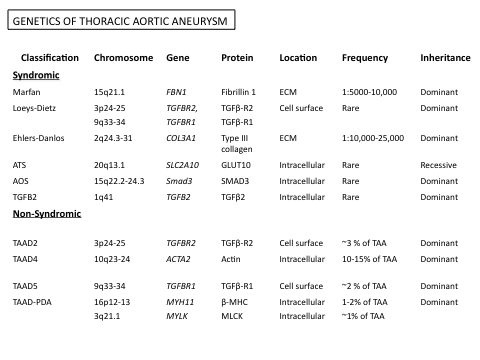PRACTICAL GENETICS OF THORACIC AORTIC ANEURYSM
John A. Elefteriades, M.D., Aortic Institute at Yale-New Haven, CT, USA
The discovery of the genetics of thoracic aortic aneurysm dates back to observations by Hippocrates in 400 BC. The contributions of Marfan, Ehler, and Danlos are well-appreciated. Another germinal advance was the recognition in 1981 by M. David Tilson at Yale that abdominal aortic aneurysm runs in families. In recent times, Loeys and Dietz have identified the syndrome that carries their names. Milewicz has identified specific mutations that account for about 1/5th of all familial thoracic aortic aneurysms.
Our work at Yale has indicated that 21% of patients with thoracic aortic aneurysm have at least one family member with a thoracic aortic aneurysm somewhere in the body. The majority show an autosomal dominant pattern of inheritance with incomplete penetrance. Probands with ascending aneurysms tend to have family members with ascending aneurysm, while probands with descending aneurysms tend to have family members with either descending or abdominal aortic aneurysms. Bicuspid aortic valve, being so common (2% of general population) produces orders of magnitude more aortic dissections than the better appreciated Marfan syndrome.
The Table summarizes the known mutations that can produce thoracic aortic aneurysm. Genetic testing is available for all of these conditions.
In addition to the tests in the Table, our RNA Signature test for thoracic aortic aneurysm, now replicated in a second population, show a greater than 80% accuracy in detecting thoracic aortic aneurysm from a simple blood test.
The genetic understanding of thoracic aortic aneurysm promises to enhance detection of this silent killer and to permit “personalized” decision-making in the near future.

|